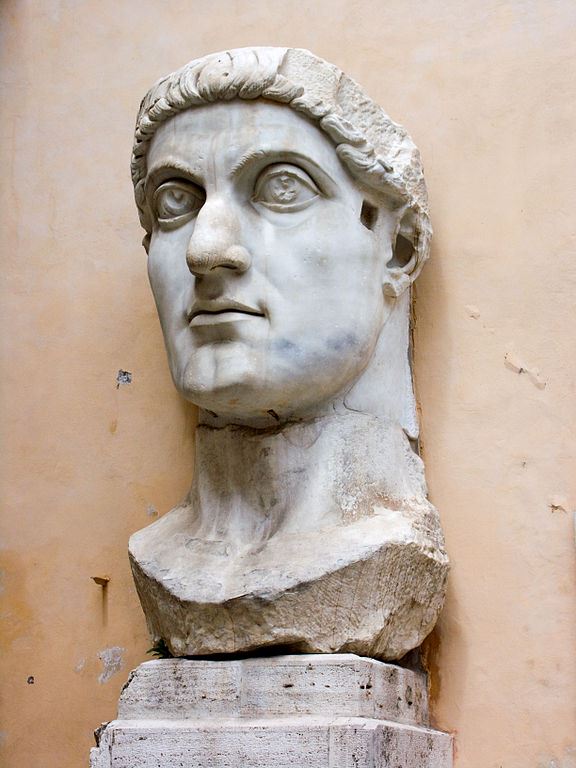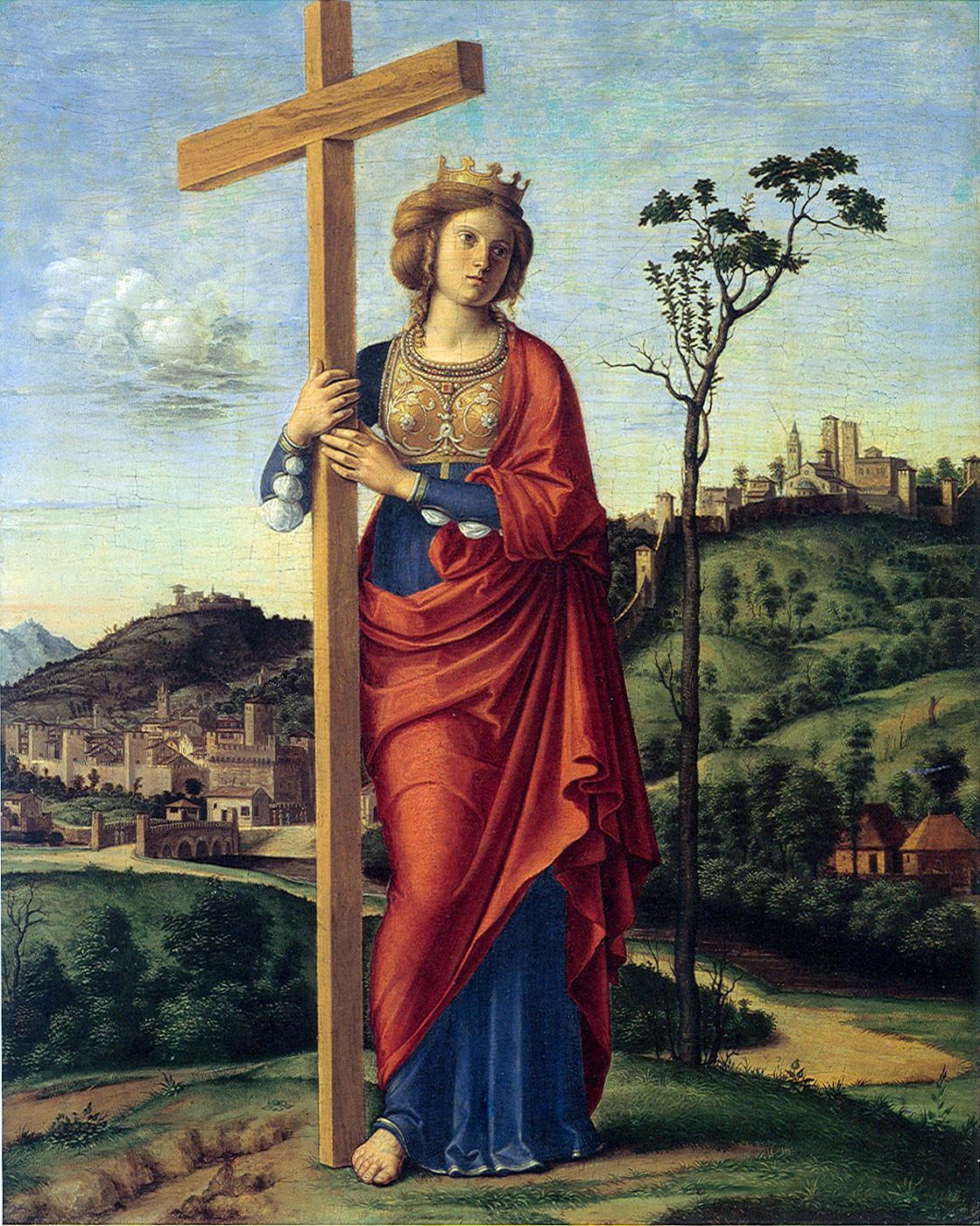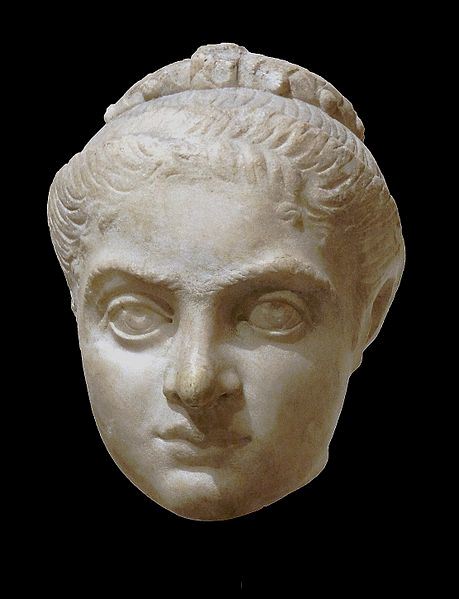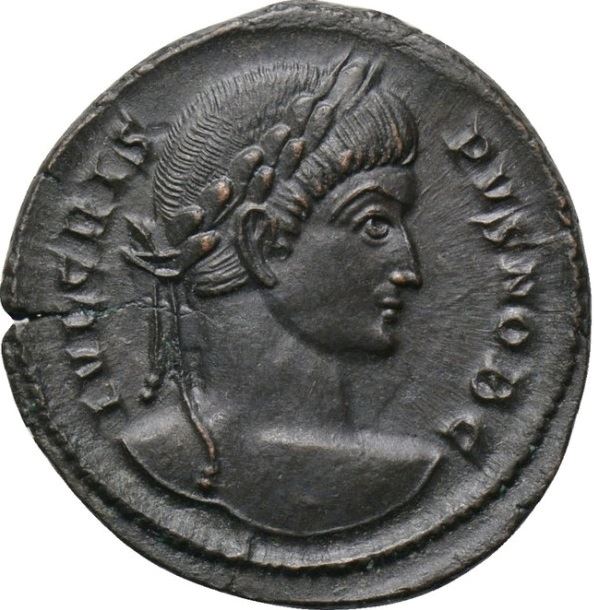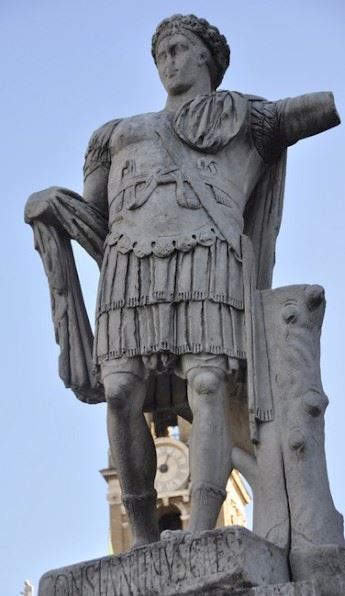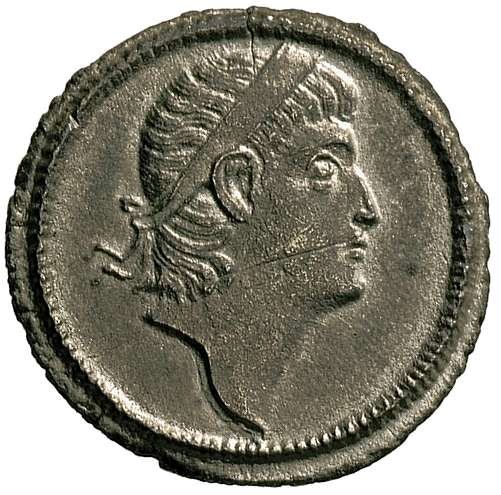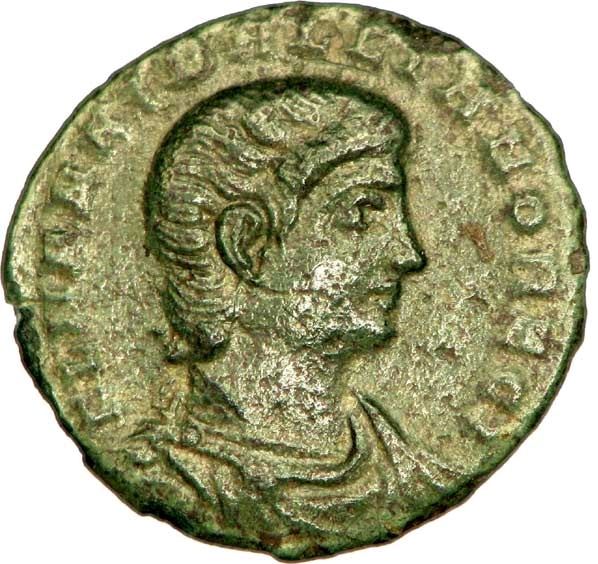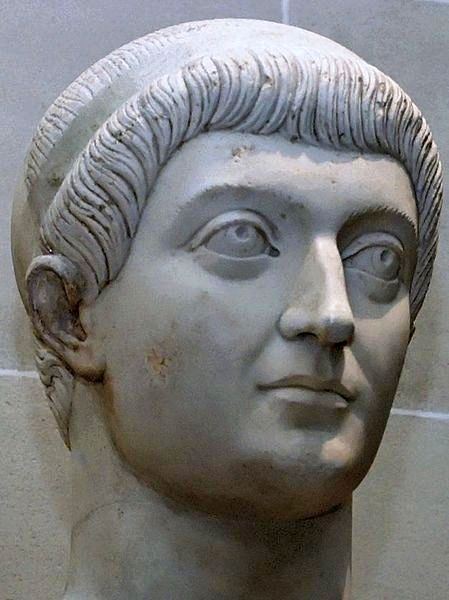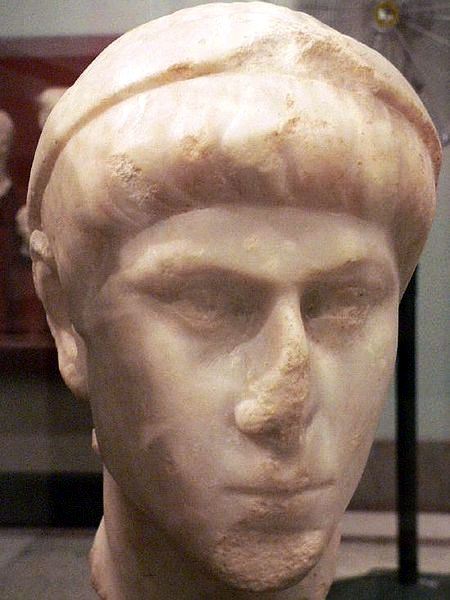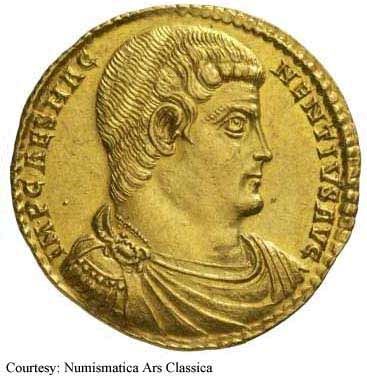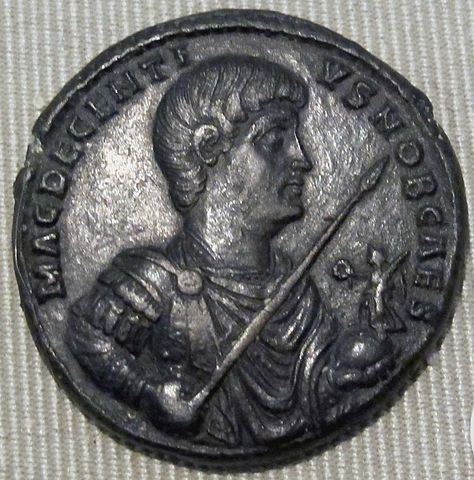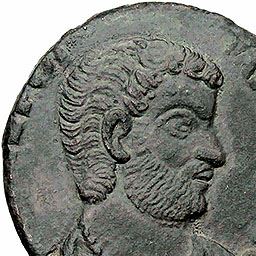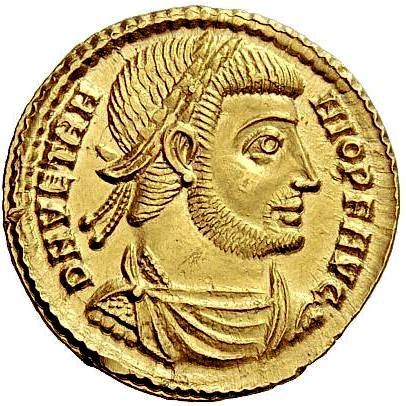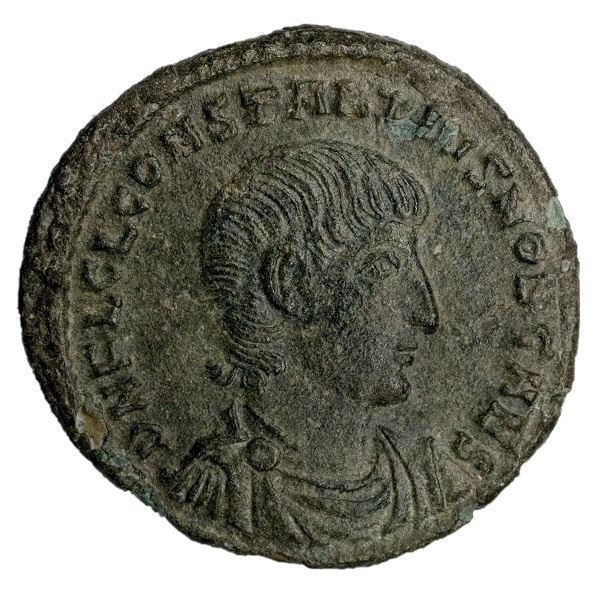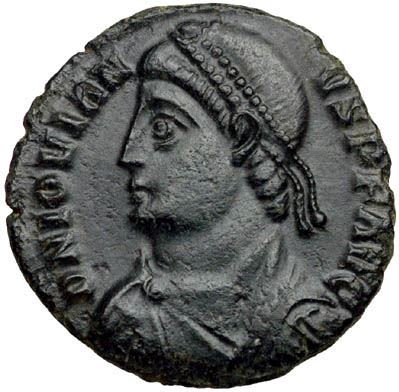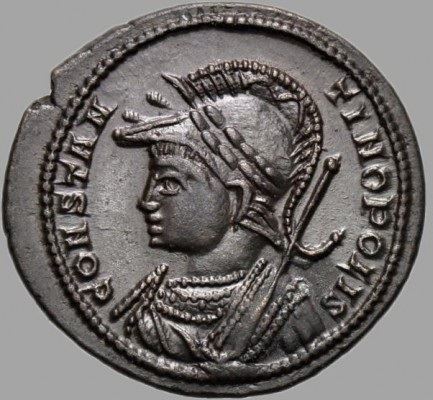The Constantinian Era refers to the period between 324 and 364 AD, which was dominated by the rule of Constantine the Great, his sons, and his extended family.
The Constantinian Era marks an important shift in Roman history - an end to the persecution of Christians and the slow but certain christianization of the Empire, which would culminate with Christianity being declared the only legal imperial religion in 380 AD.
Ironically, a notable exception to the trend was the Emperor Julian - the last Constantinian emperor - who tried to revive the old pagan beliefs and reinstitute religious freedom. He failed, however, and his successor Jovian - although not of Constantinian stock - were to be the last of the emperors of the Constantinian Era before the Roman Empire was split into two.
The Constantinian Era marks an important shift in Roman history - an end to the persecution of Christians and the slow but certain christianization of the Empire, which would culminate with Christianity being declared the only legal imperial religion in 380 AD.
Ironically, a notable exception to the trend was the Emperor Julian - the last Constantinian emperor - who tried to revive the old pagan beliefs and reinstitute religious freedom. He failed, however, and his successor Jovian - although not of Constantinian stock - were to be the last of the emperors of the Constantinian Era before the Roman Empire was split into two.
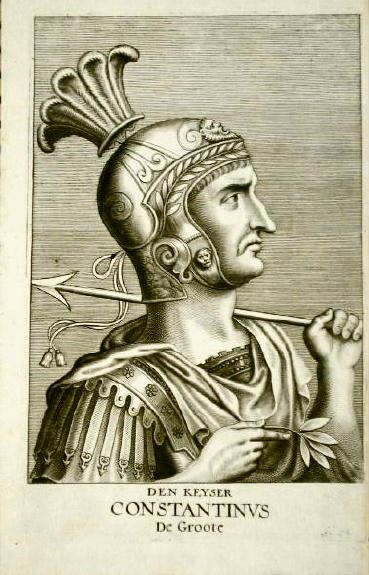
Flavius Valerius Aurelius Constantinus Augustus was Roman Emperor from 306 to 337 AD. He was the son of Constantius I 'Chlorus'.
After his father's death in 306 AD, Constantine was proclaimed emperor and emerged victorious in a series of civil wars against the emperors Maxentius and Licinius to become sole ruler of both west and east by 324 AD.
As emperor, Constantine enacte...
After his father's death in 306 AD, Constantine was proclaimed emperor and emerged victorious in a series of civil wars against the emperors Maxentius and Licinius to become sole ruler of both west and east by 324 AD.
As emperor, Constantine enacte...
Flavia Iulia Helena Augusta was an Empress of the Roman Empire, and mother of Emperor Constantine the Great.
Born in Drepana, Bithynia in Asia Minor, she became the consort of the future Roman Emperor Constantius Chlorus and the mother of the future Emperor Constantine the Great. She ranks as an important figure in the history of Christianity and of the world due to her major influence...
Born in Drepana, Bithynia in Asia Minor, she became the consort of the future Roman Emperor Constantius Chlorus and the mother of the future Emperor Constantine the Great. She ranks as an important figure in the history of Christianity and of the world due to her major influence...
Flavia Maxima Fausta was a Roman Empress, daughter of the Roman Emperor Maximianus.
In 307, her father Maximianus married her to Constantine I, who set aside his wife Minervina in her favour. Empress Fausta was held in high esteem by Constantine, and proof of his favour was that in 324 she was proclaimed Augusta; previously she held the title of Nobilissima Femina.
However ...
In 307, her father Maximianus married her to Constantine I, who set aside his wife Minervina in her favour. Empress Fausta was held in high esteem by Constantine, and proof of his favour was that in 324 she was proclaimed Augusta; previously she held the title of Nobilissima Femina.
However ...
Flavius Julius Crispus was a Caesar of the Roman Empire. He was the first-born son of Constantine I and Minervina. He was well liked by his father and the army, and was the most likely successor to the imperial reins.
However, in 326 Crispus was suddenly tried by a local court in Istria and executed - at his fathers orders, no less.
Ancient hisorians claim that his step-moth...
However, in 326 Crispus was suddenly tried by a local court in Istria and executed - at his fathers orders, no less.
Ancient hisorians claim that his step-moth...
Flavius Claudius Constantinus Augustus was Roman Emperor from 337 to 340.
Constantine II was the eldest son of Constantine the Great and Fausta, after the death of his half-brother Crispus.
Following the death of his father in 337, Constantine II initially became emperor jointly with his brothers Constantius II and Constans, with the Empire divided between them and their cou...
Constantine II was the eldest son of Constantine the Great and Fausta, after the death of his half-brother Crispus.
Following the death of his father in 337, Constantine II initially became emperor jointly with his brothers Constantius II and Constans, with the Empire divided between them and their cou...
Flavius Dalmatius was a Caesar of the Roman Empire, and member of the Constantinian dynasty.
Dalmatius was the nephew of Constantine I. His father, also named Flavius Dalmatius, was the half-brother of Constantine and served as censor. He was the brother of Hannibalianus.
On 18 September 335, he was raised to the rank of Caesar, with the control of Thracia, Achaea and Macedon...
Dalmatius was the nephew of Constantine I. His father, also named Flavius Dalmatius, was the half-brother of Constantine and served as censor. He was the brother of Hannibalianus.
On 18 September 335, he was raised to the rank of Caesar, with the control of Thracia, Achaea and Macedon...
Flavius Hannibalianus was a member of the Constantinian dynasty.
Hannibalianus was the son of Flavius Dalmatius, and the nephew of Constantine I. He married Constantia, Constantine's eldest daughter.
In 337, Hannibalianus was made Rex Regum et Ponticarum Gentium, "King of the Kings and of the Pontic People". It was probably Constantine's intention to put Hannibalianus on the ...
Hannibalianus was the son of Flavius Dalmatius, and the nephew of Constantine I. He married Constantia, Constantine's eldest daughter.
In 337, Hannibalianus was made Rex Regum et Ponticarum Gentium, "King of the Kings and of the Pontic People". It was probably Constantine's intention to put Hannibalianus on the ...
Flavius Iulius Constans Augustus was Roman Emperor from 337 to 350. He was the third and youngest son of Constantine the Great and Fausta, his father's second wife.
With Constantine’s death in 337, Constans and his two brothers, Constantine II and Constantius II, divided the Roman world between themselves and disposed of virtually all relatives who could possibly have a claim to the thr...
With Constantine’s death in 337, Constans and his two brothers, Constantine II and Constantius II, divided the Roman world between themselves and disposed of virtually all relatives who could possibly have a claim to the thr...
Flavius Julius Constantius Augustus was Roman Emperor from 337 to 361. As the second son of Constantine I and Fausta, he ascended to the throne with his brothers Constantine II and Constans upon their father's death.
His brother Constans was overthrown and assassinated in 350 by the usurper Magnentius. Constantius II then defeated Magnentius to become the sole ruler of the Empire.
...
His brother Constans was overthrown and assassinated in 350 by the usurper Magnentius. Constantius II then defeated Magnentius to become the sole ruler of the Empire.
...
Flavius Magnus Magnentius Augustus was a usurper of the Roman Empire from 350 to 353.
Born in Samarobriva (Amiens), Gaul, Magnentius was the commander of the Imperial guard units. When the army grew dissatisfied with the behavior of Roman Emperor Constans, it elevated Magnentius. Constans was abandoned by all except a handful of retainers, and he was slain shortly afterwards by a troop ...
Born in Samarobriva (Amiens), Gaul, Magnentius was the commander of the Imperial guard units. When the army grew dissatisfied with the behavior of Roman Emperor Constans, it elevated Magnentius. Constans was abandoned by all except a handful of retainers, and he was slain shortly afterwards by a troop ...
Magnus Decentius was a usurper of the Western Roman Empire against emperor Constantius II. Decentius was possibly the cousin or brother of Magnentius, who had revolted against Constantius on 18 January 350.
Magnentius elevated Decentius to the rank of Caesar that winter, to oversee the defence of Gaul and the Rhine frontier. He was appointed consul ordinarius in 352.
When Mag...
Magnentius elevated Decentius to the rank of Caesar that winter, to oversee the defence of Gaul and the Rhine frontier. He was appointed consul ordinarius in 352.
When Mag...
Julius Nepotianus, sometimes known in English as Nepotian, was a member of the Constantinian dynasty who reigned as a short-lived usurper of the Roman Empire.
Nepotianus was the son of Eutropia, half-sister of Emperor Constantine I, and of Virius Nepotianus. On his mother's side, he was the grandson of Emperor Constantius Chlorus and Flavia Maximiana Theodora.
After the revol...
Nepotianus was the son of Eutropia, half-sister of Emperor Constantine I, and of Virius Nepotianus. On his mother's side, he was the grandson of Emperor Constantius Chlorus and Flavia Maximiana Theodora.
After the revol...
Flavius Vetranio Augustus was a Roman soldier and statesman, a native of the province of Moesia (in modern Serbia). He was briefly Augustus of the Roman Empire between the 1. March – 25. December 350.
He was asked by Constantina, the sister of Roman Emperor Constantius II, to proclaim himself Emperor. Her brother Constans had been killed by Magnentius earlier that year and she probably...
He was asked by Constantina, the sister of Roman Emperor Constantius II, to proclaim himself Emperor. Her brother Constans had been killed by Magnentius earlier that year and she probably...
Flavius Claudius Constantius Gallus , commonly known as Constantius Gallus, was a member of the Constantinian dynasty and Caesar of the Roman Empire from 351 to 354.
Gallus was a half-first cousin to the sons of Constantine the Great; Constans, Constantine II & Constantius II. In 350, Magnentius had rebelled, killed the emperor Constans, and proclaimed himself emperor. Constantius II p...
Gallus was a half-first cousin to the sons of Constantine the Great; Constans, Constantine II & Constantius II. In 350, Magnentius had rebelled, killed the emperor Constans, and proclaimed himself emperor. Constantius II p...
Flavius Claudius Iulianus Augustus, also known as Julian the Apostate, was Roman Emperor from 361 to 363.
Julian became Caesar over the western provinces by order of Constantius II in 355, and campaigned successfully against the Alamanni and Franks. In 360 he was proclaimed Augustus by his soldiers, sparking a civil war between Julian and Constantius. Before the two could face each othe...
Julian became Caesar over the western provinces by order of Constantius II in 355, and campaigned successfully against the Alamanni and Franks. In 360 he was proclaimed Augustus by his soldiers, sparking a civil war between Julian and Constantius. Before the two could face each othe...
Flavius Iovianus Augustus was Roman Emperor from 363 to 364.
Upon the death of emperor Julian the Apostate during his campaign against the Sassanid Empire, Jovian was hastily declared emperor by his soldiers. He sought peace with the Persians on humiliating terms and reestablished Christianity as the state church.
His reign lasted only eight months; After making peace with ...
Upon the death of emperor Julian the Apostate during his campaign against the Sassanid Empire, Jovian was hastily declared emperor by his soldiers. He sought peace with the Persians on humiliating terms and reestablished Christianity as the state church.
His reign lasted only eight months; After making peace with ...
City commemoratives are small bronze coins stucj by Constantine I 'the Great' and his sons to the effect of commemorating the old capital, Rome, and the new capital, Constantinople, and to symbolize the equality of the two cities and the new importance of Constantinople to the empire.
Most common types are the CONSTANTINOPOLIS with a Victory on Prow reverse, and the VRBS ROMA with a Wol...
Most common types are the CONSTANTINOPOLIS with a Victory on Prow reverse, and the VRBS ROMA with a Wol...

